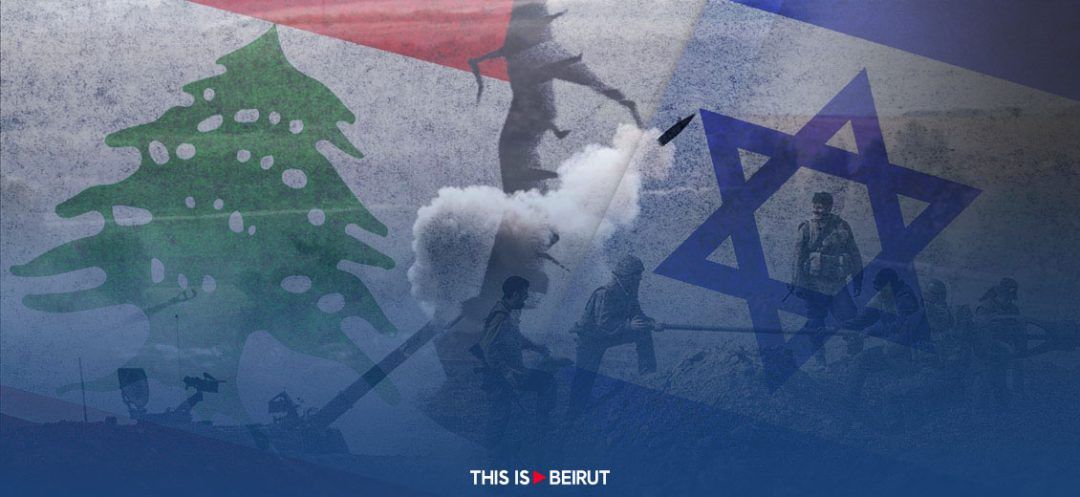
After addressing the scenario in which Lebanon has a President-in-Office, the second part of the article will look at negotiation prerogatives in the event of a presidential vacancy and a systematic institutional vacuum.
In the current situation, in which Lebanon does not have a sitting President, and in the event of negotiations taking place, would it be deemed normal for Lebanon, in a state of institutional void, to tackle such a thorny issue?
The Current Situation
“Is there a willingness to normalize the presidential vacancy by showing that Lebanon can proceed with negotiations of this magnitude, even in the absence of a President? All the President’s powers, including those to negotiate and ratify treaties, are linked to the person of the President and must be exercised by him (or her),” says Ziyad Baroud, former Minister of Interior, to This is Beirut.
Regarding its implementation, Article 62 of the Constitution states that in the event of a presidential vacancy, the Council of Ministers exercises the powers of the President on an interim basis. However, the Government is presently only managing current affairs. Therefore, Baroud points out that we are faced with a twofold problem: Are we talking about all the prerogatives as if a presidential vacuum has become the norm? Secondly, can a caretaker government freely exercise all the President’s powers, or does it remain limited to the narrow sense of managing current affairs? “The Constitution clearly states that when a government resigns, it can only perform its functions in a restricted manner. What would be the President’s duties and powers on an interim basis?”
According to General Khalil Helou, the Constitution states that the President is the person who negotiates, signs and initials treaties between Lebanon and foreign countries. In his absence, and as there can be no vacuum within State institutions, it is up to the Council of Ministers to negotiate. This is problematic, because, technically, it is not feasible.
Ziyad Baroud shares the same view, questioning how a 24-member government can negotiate as a whole given that they are unable to meet due to political differences. “The Constitution is completely silent on the matter. There is nothing explicitly stating how the Council of Ministers, exercising the powers of the President on an interim basis, can vote on important decisions. Is it possible to negotiate with 24 people? What kind of majority is needed for the vote: simple majority, two-thirds majority, unanimous vote?”
According to an informed diplomatic source, a preliminary agreement can be finalized and initialed. This could constitute a draft solution, to which would be added a clause specifying that the agreement would become effective once a President is elected. The source adds, however, that he does not see that happening as Israel does not want to relinquish what it already gained.
Treaty Denunciation
In the case where a caretaker government, like the current one, negotiates and ratifies a treaty, this could lead to denunciation. It would be difficult to do so if the treaty already resulted in legal consequences. However, procedures, mechanisms and sometimes responsibilities that are associated with denunciation do exist.
Denunciation denotes a unilateral act by which a party seeks to terminate its participation in a treaty (Unilateral Acts of States in International Law). Lawful denunciation of a bilateral treaty (Treaties) terminates it. As defined in Oxford Public International Law.
And what if a non-institutional body is the one negotiating? (in reference to Hezbollah)
It would be an irregularity, a blatant violation of the Constitution. “I don’t see that happening. Even if many parties were involved during negotiations for the maritime borders, ultimately, it was the President who gave the green light. Even in a complicated and fragmented Lebanon, where the Constitution is not at its best, there has been a formal respect for the Constitution,” explains Baroud.
Hezbollah: The Real Negotiator
It is quite clear that, in the absence of a President and ongoing brain-dead state institutions, no one is able to properly represent the country’s national interests. The only negotiator on the ground remains Hezbollah which is using the void to establish itself as the de facto negotiator.
“Practically speaking, under the current circumstances, Hezbollah will be the one negotiating. We do not live under the rule of law but in a balance of power. Hezbollah has the most power and will therefore negotiate,” says Khalil Helou. According to him, foreign negotiators, namely Israeli and American, know that negotiating with anyone else is a waste of time, and the pro-Iranian group will have its say with or without a president. Even if Lebanon has a President who is not aligned with the pro-Iranian camp, the negotiations will not succeed if the pro-Iranian group does not agree, according to General Helou.
As explained by the aforementioned diplomatic source, an agreement will be reached if the armed group can capitalize on it. “We are a kidnapped republic,” he adds.
[readmore url="https://thisisbeirut.com.lb/lebanon/236087"]
Read more




Comments